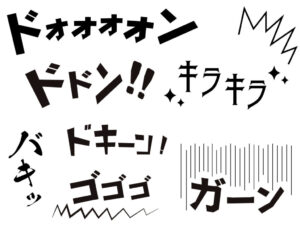If you have any questions, ask them for free! ➡ Japanese Question Form

日本語テスト やってみよう!
目安:JLPT N1
⑤ 敬語の問題 2
次の文の下線部の言葉を敬語にする場合、 最も適当なものを①~④から選びなさい。
1) (課長に)お留守中に田中さんという方が (来た) 。
① お見えになりました
② 参られておりました
③ お越しいただけました
④ おいで参りました
解答 1)①
解説:
「来る」 の尊敬語。 他に 「いらっしゃる」 「おいでになる」 「お越しになる」などがあります。
2) あのような有名な方に (会えて) 大変うれしく思いました。
① お目にかかられて
② お目にかかれて
③ お目にかけて
④ お目にかけられて
解答 2) ②
解説:
「会う」の謙譲語。 特別な形。 他に 「お会いする」など。
2) あのような有名な方に (会えて) 大変うれしく思いました。
① お目にかかられて
② お目にかかれて
③ お目にかけて
④ お目にかけられて
解答 2) ②
解説:
「会う」の謙譲語。 特別な形。 他に 「お会いする」など。
⑥ 待遇表現・ 許可をとる
次の文の不適切な箇所を直してください。
1) 〈先輩に〉
この本、 借りてもよろしいか?
解答 1) よろしいか → よろしいですか (いいですか)
2) 〈アルバイトを休みたいので許可をもらう〉
明日、休ませていただきます。
解答 2) 休ませていただきます→ 休んでもいいですか
3)
上司: 悪いけど、 来週の会議、再来週に延期してもいいかなあ。
部下 : はい、いいですよ。
解答 3) いいですよ→わかりました
※目上の人が 「許可を求める」 表現を使った場合は、許可を求めるという意図ではないことが多いので、 その場合の返答の仕方には注意が必要。
<許可を求める表現>
基本 → してもいいですか。
相手によって次のようなバリエーションがあります。
例)
~してもいい?
~してもいいですか。
~してもいいでしょうか。
~してもよろしいでしょうか。
~させていただいてもよろしいでしょうか。
上から順により丁寧な表現になります。
Review of e-learning course
- Greetings. Let’s get started! | No.1
- Let’s master katakana! | No. 2
- Have you mastered numbers? | No. 3
- Use your calendar! | No. 4
- The key to studying | No. 5
- [Video] How Characters Work 1 | No. 6
- [Video] How Characters Work 2 | No. 7
- [Video] How Characters Work 3 | No. 8
- Recommended Textbooks | No. 9
- The secret to learning a language | No. 10
- [Video] Let’s understand Japanese sounds! 1 | No. 11
- [Q&A] Why do you say “I’m sorry” when you say “Thank you”? | No. 12
- [Video] Let’s understand Japanese sounds! 2 | No. 13
- [Video] Student testimonial | No. 14
- [Video] Japanese Form, nouns, verbs, adjectives | No. 15
- [Video] Mastering the Japanese postposition | No. 16
- Podcasts useful for learning Japanese | No. 17
- Let’s use a polite form | No. 18
- [Video] Mastering the Japanese Form 3 | No. 19
- Useful apps for learning Japanese | No. 20
- [Video] Japanese postposition | No. 21
- The list of verb conjugation | No. 22
- Popular Japanese manga | No. 23
- [Video] Mastering the Japanese Form 4 | No. 24
- Summary of plain and polite forms | No. 25
- Review video learning | No. 26
- Useful websites for learning Japanese | No. 27
- [Video] Have you learned the conjugation of verbs? | No. 28
- What are -u verbs? | No. 29
- [Video] About verb groups | No. 30
- What are -Ru verbs? | No. 31
- [Video] Do you know the rules for verb conjugation? | No. 32
- [Q&A] Why do pedestrians wait even when there is no car? | No. 33
- What are -Irregular verbs? | No. 34
- [Video] Scenes where verb conjugation is used | No. 35
- Youtube for learning Japanese | No. 36
- What are -I adjectives? | No. 37
- What are -Na adjectives? | No. 38
- Adjective conjugation tables | No. 39
- [Video] Basics of speaking | No. 40
- Challenge JLPT. Try it for free! | No. 41
- 67% OFF Special Discount Campaign! | No. 42
- Why “honorifics” play an important role? | No. 43
- [Video] Let’s use a polite form! | No. 44
- Finding a job in Japan | No. 45
- [Q&A] Is it true that Japanese people do not have religion? | No. 46
- Download Perfect Honorific Master | No. 47
- [Video] Advanced if you can use honorifics | No. 48
- Readings for learning Japanese | No. 49
- [Video] Why you don’t have to repeat the subject? | No. 50
- Japan travel websites | No. 51
- [Video] Why is the oral language different? | No. 52
- [Video] How to count things | No. 53
- [Video] Many onomatopoeia peculiar to Japanese | No. 54
- Let’s review the classification and function of honorifics | No. 55
- Tips for mastering honorifics | No. 56
- Let’s try honorific exercises | No. 57
- Handbook for Japanese life | No. 58
- [Video] Failure story of learning Japanese | No. 59
- Get 100 Q & A about Japan | No. 60
The HH JapaNeeds Team
Your tutor. Your time. Your location.

Classes for Learning Japanese in Okinawa
In this day and age when we can look up information from all over the world on the Internet, it

What is the meaning of “Omikuji”?
When visiting shrines on New Year’s Day, Japanese people are tempted to draw omikuji. It is difficult to return home

Onomatopoeias commonly used in Japan that you should remember
The language of each country has words and grammar, but there are also words called “onomatopoeia“. Onomatopoeia is a general

How to Spend Valentine’s Day in Japan
February 14 is “Valentine’s Day. Many people buy delicious and fashionable chocolates for gifts or make their own handmade chocolates






